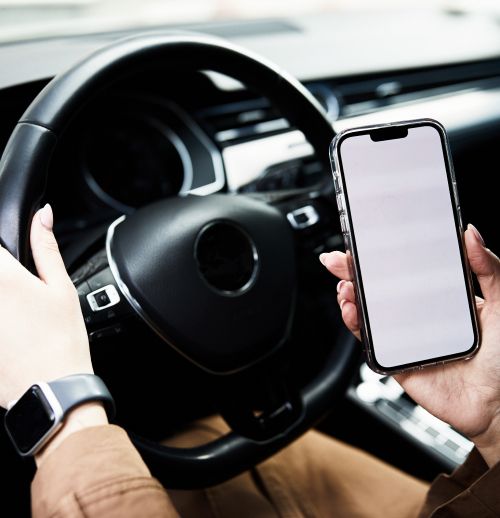How do you normally get a cell phone ticket?
Receiving a cell phone ticket typically arises from being observed using a mobile device while driving in a manner that's prohibited by local laws. Here's how it usually happens:
- Holding the Device: In many jurisdictions, it's illegal to hold a cell phone or electronic device while driving. This includes when you're stopped at traffic lights or in heavy traffic. An officer may issue a ticket if they see the device in your hand.
- Texting: Texting or sending messages while driving is a common reason for cell phone tickets. If an officer observes a driver looking down frequently, especially with their device illuminated or in their hand, they might pull them over.
- Talking without a Hands-free System: In places where only hands-free calling is allowed, drivers can be ticketed for making calls without the use of a hands-free system, such as Bluetooth or an integrated car system.
- Browsing or App Usage: Using apps, browsing the internet, or any other interaction with the phone that isn't permitted while driving can result in a ticket.
- Evidence from Accidents: After a vehicular accident, if there's suspicion or evidence suggesting a driver was using their phone, a ticket might be issued.
- Camera Footage: In some jurisdictions, traffic or law enforcement cameras can capture drivers using their cell phones while driving, leading to a ticket sent by mail.
- Other Observations: Other behaviors that suggest phone usage, like not maintaining lane discipline, driving too slowly, or not moving when a traffic light turns green, can draw an officer's attention. If they then observe the driver using a phone, they might issue a ticket.
It's important to be aware of local laws regarding cell phone usage while driving. Many jurisdictions have adopted strict regulations to combat distracted driving, which has been linked to a significant number of accidents and fatalities.

Is it worth it to challenge a cell phone ticket?
Whether or not it's worth challenging a cell phone ticket depends on several factors:
- Evidence: If you genuinely weren't using your cell phone as alleged, and you have evidence to prove it (e.g., phone logs, witness statements), then it might be worth contesting the ticket.
- Penalties: In some areas, penalties for cell phone usage while driving can be substantial, including hefty fines, points on your driving record, or even increased insurance rates. If the consequences are severe, it might be worth challenging the ticket, especially if you believe you have a strong defense.
- Legal Costs: If you're considering hiring an attorney, like James Medows, to fight the ticket, weigh the attorney's fees against the potential benefits of winning your case or reducing the penalties.
- Record: If you already have points on your driving record or previous violations, another ticket might push you closer to a license suspension or increased insurance premiums. In such a scenario, challenging the ticket might be beneficial.
- Court Appearance: Attending court can be time-consuming. Depending on your personal or work schedule, it might be more inconvenient to challenge the ticket than to pay the fine, especially if the potential savings aren't substantial.
- Jurisdictional Factors: Some courts or jurisdictions might be more lenient or offer first-time offenders the chance to attend a driving course instead of receiving a penalty. This could influence your decision to challenge the ticket.
- Mitigating Circumstances: If there were specific circumstances that led to you using your phone — for instance, a genuine emergency — some courts might take this into consideration. However, "emergency" in legal terms might be narrowly defined, so it's worth consulting with an expert.
- Officer's Testimony: Often, cell phone or portable electronic device tickets are based on an officer's observation. If you believe there was a genuine misunderstanding or that the officer might not recall the incident clearly, it might be worth contesting. However, remember that in many cases, the court tends to side with the officer's account unless there's evidence to the contrary.
In conclusion, the decision to challenge a cell phone ticket should be based on the individual circumstances surrounding the incident, the potential legal and financial consequences, and the strength of your defense. If you're unsure, consulting with a traffic ticket lawyer can provide clarity.

